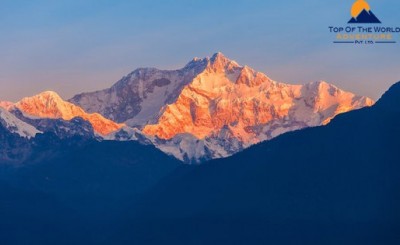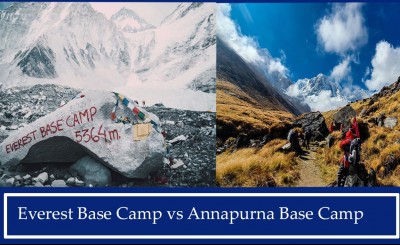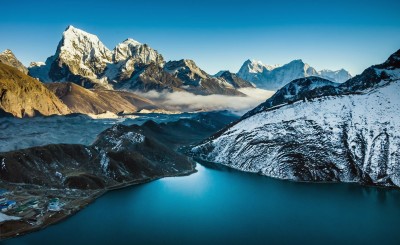Nepal, a land of breathtaking landscapes, rich culture, and endless adventure! settled among the majestic Himalayas, Nepal is a haven for travelers seeking to immerse themselves in nature's magnificence and cultural treasures. From the towering peaks of Mount Everest to the calm lakes of Pokhara, every corner of this charming country attracts with its unique glamour.
However, among the stunning landscapes and fascinating experiences, exploring Nepal's varied terrain and cultural diversity can be both exhilarating and daunting. That's why we've created this essential guide filled with tips to make your journey through Nepal truly exceptional.
Whether you're setting off on a trek to Everest Base Camp, wandering through the historic streets of Kathmandu, or immersing yourself in the peacefulness of rural villages, these crucial tips will enhance your Nepalese adventure to the fullest.
So, prepare yourself and get ready to embark on an adventure of exploration, uncovering the secrets to navigating Nepal with confidence, respect, and a sense of adventure!
- Obtain the Necessary Permits:
Before setting out on your journey in Nepal, ensure that you have obtained all the necessary permits. It's essential to plan to prevent any permit-related complications along the way.
- Stay Mindful of Altitude Sickness:
Stay mindful of the signs of altitude sickness, including headaches, nausea, and dizziness, particularly when trekking at higher altitudes. Ascend slowly to allow your body to acclimatize, take regular breaks, and ensure you stay hydrated to minimize the risk of altitude sickness.
- Avoid Trekking Alone:
One crucial safety tip for travelers is to avoid trekking alone, particularly in Nepal, where instances of solo trekkers going missing have been reported. To reduce the risks, consider using online platforms to connect with other trekkers or hire a guide if you're traveling solo.
- Pack Wisely:
Prepare your packing based on the season and your planned activities. Ensure to bring clothing suitable for varying temperatures, including layers, and sturdy footwear suitable for trekking or walking on uneven surfaces.
- Always have Cash on Hand:
It is strongly advised to have cash with you while traveling in Nepal. Having cash on hand can be beneficial, particularly in places where card payments are not accepted or where ATMs are scarce. Having an adequate amount of cash ensures seamless transactions and serves as a precautionary measure in case of emergencies.
- Consider Purchasing a Local SIM Card:
Consider obtaining a local SIM card for your mobile device. While foreign cards might function, it's more efficient and economical to select a local service provider. Have copies of your passport and visa, along with a passport-sized photo, ready for purchase. Tourist packages are conveniently accessible at Kathmandu airport.
- Get Travel Insurance:
Think about acquiring insurance to address any health issues you may encounter. Before purchasing a new policy, confirm your current coverage. Typically, standard plans provide protection for baggage, ticket, and cash losses, as well as trip cancellations. However, be aware that engaging in activities above 4000 meters may require extra coverage.
- Take a Universal Adapter
Ensure to bring a universal adapter as electrical outlets typically feature two or three round points, with plug types including Type C and Type D. Therefore, having a universal adapter guarantees compatibility with local outlets.
- Safety and Security
Although Nepal is considered safe for tourists, it’s essential to remain cautious, especially in busy places and popular tourist spots where theft may occur. Be aware of scams, particularly those related to trekking permits or unrealistically inexpensive tour packages.
- Get Vaccinated:
Before traveling, it’s wise to consult your doctor for vaccination, including tetanus, covid-19, typhoid, and polio, especially for children. Nepal is generally safe, but it’s best to take precautions.
- Learn Basic Nepali Phrases
learn some basic Nepali phrases such as “Namaste” for greeting, “Dhanyabad” for expressing gratitude, and “kripaya” for making polite requests to improve communication with locals and demonstrate appreciation for their culture.


